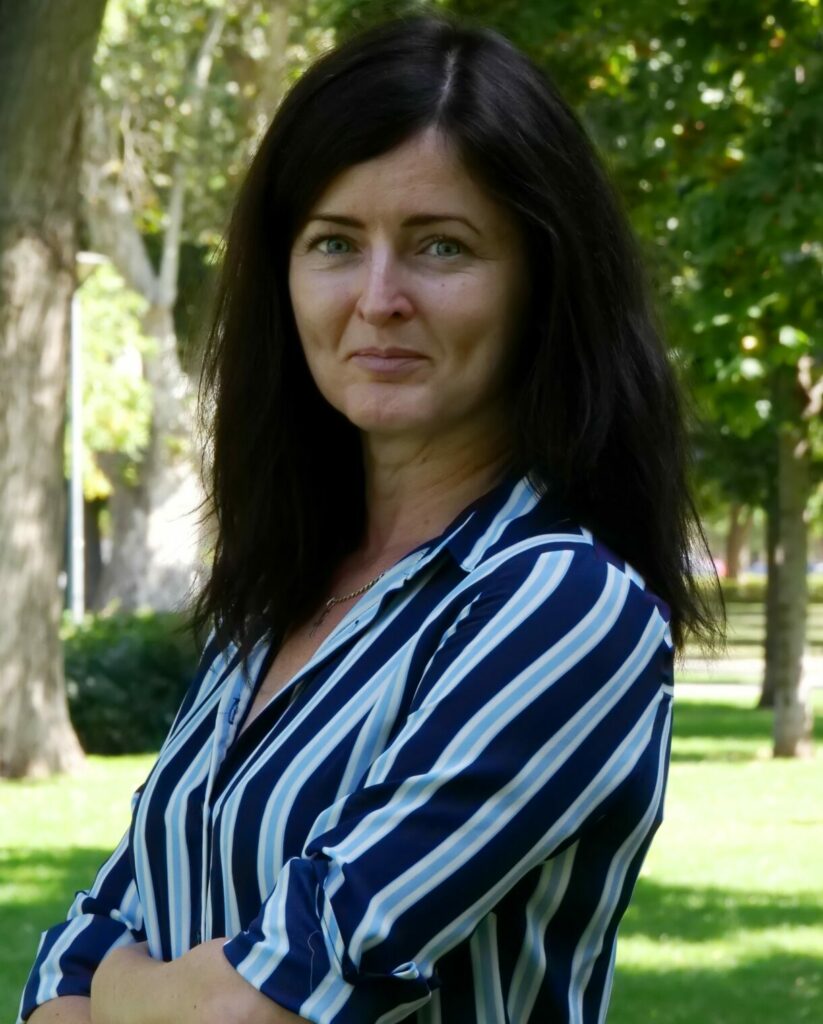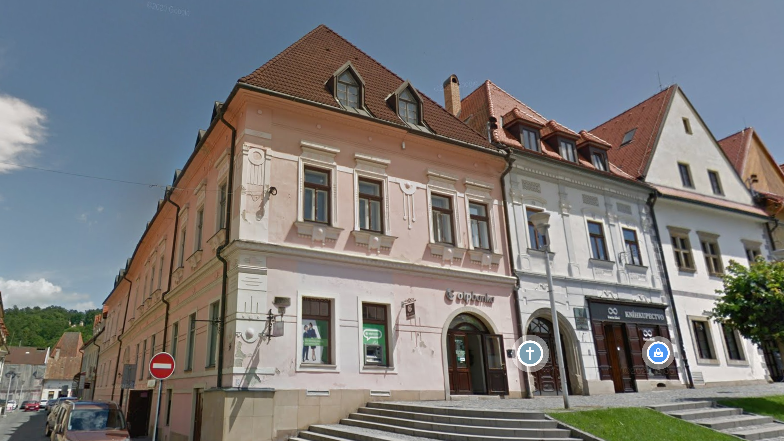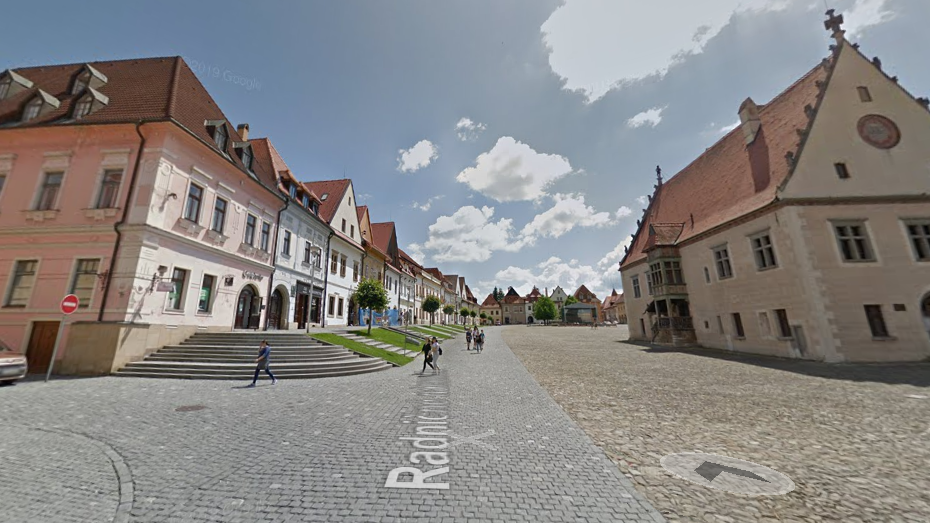The https://english.atlatszo.hu use cookies to track and profile customers such as action tags and pixel tracking on our website to assist our marketing. On our website we use technical, analytical, marketing and preference cookies. These are necessary for our site to work properly and to give us inforamation about how our site is used. See Cookies Policy
Foundation of Hungarian Foreign Minister’s staff bought another historic building in Slovakia
A subsidiary of the Foundation for Preserving Built Heritage in Central Europe purchased a pink corner house in the historic centre of Bardejov in February this year. The building previously housed an OTP branch for several years and is now offered on a long-term lease for an unknown price. The foundation, headed by the deputy of Péter Szijjártó, the Hungarian Minister of Foreign Affairs, owns 26 properties in 5 neighbouring countries. In Slovakia alone, it has 14 real estate.
In 2021 the Hungarian government established the Foundation for Preserving Built Heritage in Central Europe (Közép-európai Épített Örökség Megőrző Alapítvány, in short KEOMA). The organisation is supposed to buy and renovate historic Hungarian properties in the Carpathian Basin, in areas that belonged to Hungary before the Treaty of Trianon more than 100 years ago.

The government donated two state-owned companies, Manevi Zrt. and Comitatus-Energia Zrt., to the foundation as a start. They had a total of 4 properties abroad at the time of the donation: a wellness centre in Lendava, Slovenia, a listed building in Osijek, Croatia, and two hotels in Romania, the Pannónia Hotel in Satu Mare and the Korona Hotel in Maramures.
But the acquisition of properties did not stop there: at the end of 2021 in our joint research with Átlátszó Transylvania, we found 16 properties and 6 subsidiaries in 4 countries. Last year they continued the expansion: in April, the foundation’s Slovakian subsidiary Manevi SK (founded by Manevi Zrt., but owned by Comitatus-Energia Zrt. since November 2021) bought a building in Komarno. In June, the company purchased the Veľký Kamenec Castle and the nearby castle, as well as the Faigel-Thurzó castle and a Baroque mansion in the village of Betlanovce, and three historic buildings in Kežmarok, Levoča, and Trenčín.
Pink corner house in Bardejov
A few days ago, the Slovak newspaper Korzár reported that KEOMA’s Slovak subsidiary Manevi SK bought a building in the historic center of Bardejov in February this year. The town of about 30,000 inhabitants, located near the Polish border, was added to the World Heritage List by UNESCO in 2000 for its cultural significance and the uniqueness of its buildings.
The property bought by Manevi SK is located in the main square of the Slovakian town, near the 15th century Basilica of St Giles, next to the 16th century town hall.
For years, the ground floor of the pink corner building was an OTP branch, as you can see on the 2019 Google street view. But that’s all in the past: since 31 May this year, a Slovakian real estate portal has offered the 200-square-metre property for long-term rent for business and gastronomy purposes.
According to the Slovakian land registry, the historic building was transferred to Manevi SK on 23 February 2023. According to the article of Korzár, the previous owner was OTP Real Slovensko s.r.o., but it is unknown how much the KEOMA subsidiary paid for it.
26 properties in 5 countries
Last summer Atlatszo reported that the foundation owned 24 properties – or at least that much is known. In March this year, however, Átlátszó Vojvodina reported that a subsidiary had also purchased a property in the centre of Subotica, Serbia. This former bank building is the 25th on the list, and the pink corner house in Bardejov is the next.
Now we know about 26 real estate in 5 countries: the Foundation for Preserving Built Heritage in Central Europe owns
in Slovakia 14, in Romania 8, in Slovenia 2, in Croatia and Serbia 1-1 property.
We have put them all on a map (the red ones are Manevi Zrt. and its subsidiaries, and the purple ones are Comitatus-Energia Zrt. and its subsidiaries).
Leaders close to Péter Szijjártó
In 2021, the Orbán government handed over national wealth in a wave comparable to the privatizations of the early ‘90s. The assets of formerly nationally-owned institutions, including companies and universities estimated to be worth thousands of billions of forints, have been handed over free of charge to trusts, mostly run by pro-Fidesz figures, including current government members.
Their managers are appointed by the government and receive public funds, but they are effectively run like a private firm, without the control of elected officials. The EU does not like this system due to the lack of transparency: the European Commission has cut off 21 privatised Hungarian universities from EU-funded education and research projects.
One of these state-established asset management organisations is the Foundation for Preserving Built Heritage in Central Europe (Közép-európai Épített Örökség Megőrző Alapítvány, in short KEOMA). The Board of Trustees of the Foundation is chaired by Levente Magyar, Parliamentary State Secretary, and Deputy Minister at the Ministry of Foreign Affairs, the right-hand man of Péter Szijjártó.
The members of the Board of Trustees are Péter Kiss-Parciu (former Deputy State Secretary for Regional and Cross-border Economic Development at the Ministry of Foreign Affairs), Orsolya Mária Pacsay-Tommasich (former State Secretary at the Ministry of Foreign Affairs), Gergely Jákli (CEO of Paks II. Zrt. and former CEO of Eximbank) and Zsolt Virág (former Ministerial Commissioner for the National Castle Programme and the National Castle Programme).
The foundation has no website or email address, nor does it communicate anything, thus making it hard to find out what they are doing with the public assets given to them. From their last year’s report, we know they rent a fancy office building in Budapest, and sometimes the press finds a property abroad, but the costs are hidden.
Written and translated by Katalin Erdélyi. The original, Hungarian version of this story can be found here. Data for Slovakia was provided by the Ján Kuciak Investigation Centre (ICJK). Cover photo: The pink building bought in Bardejov (source: Google, 2019).


